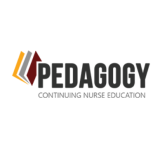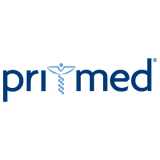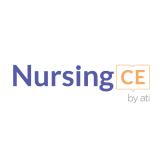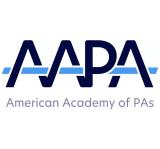Medication Errors: Understanding the Causes and Designing Effective Risk Management Strategies

The purpose of this module is to engage health care providers (prescribers), pharmacists, and other health care professionals in evidence based practices to avoid medication errors and enhance patient safety. Successful attainment of knowledge by the learner will enable improved awareness and lea
Category
- Medical Errors
- Risk Management
Format
- Self-study / Enduring
Credits
- 2.00 AMA PRA Category 1 Credit™
Current Concepts in Pain Management

This instructional course has been designed to provide current concepts and skills related to pain management.
Category
- Pain Management
Format
- Self-study / Enduring
Credits
- 4.00 Contact hours
Pain Management FAQs: Mastering the Art of Treating Pain

Clinicians who manage patients with painful conditions have many practical questions regarding the various treatment modalities—ranging from nonpharmacologic options to non-opioid therapies and opioid prescribing; they also seek information on the identification of risk for opioid use disorder (O
Category
- Pain Management
- Pharmacology
Format
- Self-study / Enduring
Credits
- 0.50 AANP Contact Hours
- 0.25 AANP Pharmacology Contact Hours
- 0.50 AMA PRA Category 1 Credit™
Pain Management and the 2022 CDC Guideline for Prescribing Opioids for Pain

Pain, in particular chronic pain, continues to impact physical functioning, mental health, and reduced quality of life, and is the leading cause of disability in the United States, leading to updated practice guidelines for prescribing opioids for pain.
Category
- Prescribing: Opioid(s)
- Pain Management: Opioid(s)
- Pain Management
Format
- Self-study / Enduring
Credits
- 3.00 AANP Contact Hours
- 3.00 AAPA Category I CME
- 3.00 AMA PRA Category 1 Credit™
Oregon: OPMC Pain Management Module
Category
Format
- Self-study / Enduring
Credits
- 1.00 AMA PRA Category 1 Credit™
- 1.00 ANCC
Pain Management Nursing CE Course for APRNs

This course will provide an overview of the pathophysiology of pain, the components of a comprehensive pain assessment, and discuss nonpharmacological and non-opioid pharmacological management of pain.
Category
- Pharmacology
- Pain Management
Format
- Self-study / Enduring
Credits
- 6.50 ANCC
Assessment and Management of Pain at the End of Life

Because pain is frequently encountered in the palliative and hospice care environments, a knowledge of appropriate diagnosis and alleviation is vital to all members of the interdisciplinary team.
Category
- Pain Management: End of Life
Format
- Self-study / Enduring
Credits
- 2.00 AMA PRA Category 1 Credit™
- 2.00 ANCC
Assessment and Management of Pain at the End of Life

Because pain is frequently encountered in the palliative and hospice care environments, a knowledge of appropriate diagnosis and alleviation is vital to all members of the interdisciplinary team.
Category
- Pain Management: End of Life
Format
- Self-study / Enduring
Credits
- 2.00 Association of Social Work Boards (ASWB)
Pain Management Pearls: Opioids and Culture

Pain affects all domains of life, and clinicians have few effective tools at their disposal to help these patients. Opioids remain the strongest group of analgesic drugs available.
Category
- Pharmacology
- Pain Management: Opioid(s)
Format
- Self-study / Enduring
Credits
- 2.00 AMA PRA Category 1 Credit™
- 2.00 ANCC
Managing Acute Pain 101: A Toolkit for Successfully Treating Pain in the Emergency Department

This series counts toward the new Drug Enforcement Administration (DEA) requirement for PAs treating and managing opioid use disorder (OUD) and substance use disorder (SUD).
Category
- Pain Management
- Pain Management: Acute
Format
- Self-study / Enduring
Credits
- 1.00 AAPA Category I CME

 Facebook
Facebook Twitter
Twitter LinkedIn
LinkedIn Forward
Forward